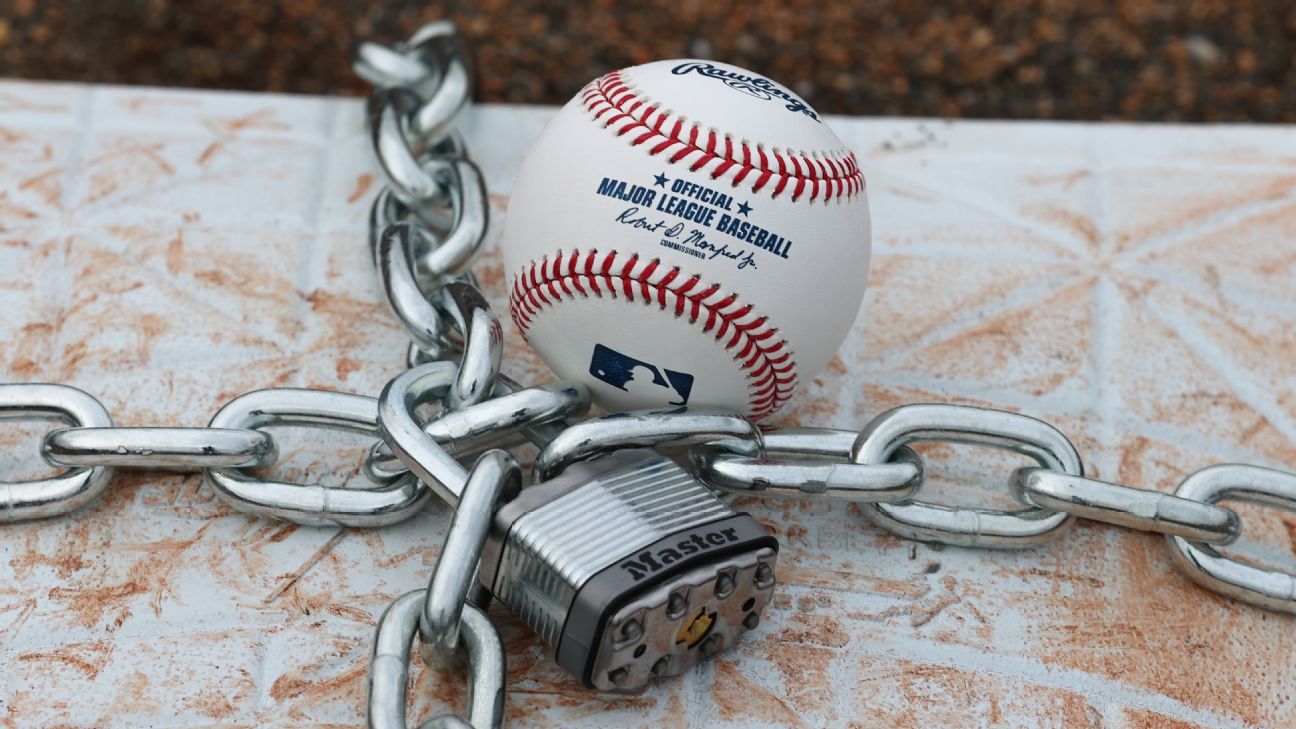
Officials from the Major League Baseball Players Association are preparing a written response to MLB's last offer on a new collective bargaining agreement that preceded the league canceling the first week of the regular season, sources familiar with the union's plans told ESPN.
When the sides will next meet is unclear, and as the league's lockout of the union approaches its 100th day, the MLBPA will need the approval of player leaders before bringing any parameters on a potential deal to the league after rejecting its proposal Tuesday afternoon.
Commissioner Rob Manfred officially canceled the first two series of the season Tuesday, the last time the sides met. The league, which has said it wants four weeks of spring training before a season begins, could cancel another batch of games should a deal not materialize quickly. On Friday, MLB canceled minor league games through March 17.
During a Thursday meeting that included deputy commissioner Dan Halem and union lead negotiator Bruce Meyer, the league requested the union deliver in writing a document that outlines its proposals. Though the gap between the sides narrowed during nine days of bargaining in Jupiter, Florida, the sides could not strike a deal, far apart on the competitive-balance-tax threshold and other issues.
The CBT, or luxury tax, remains the sticking point in negotiations. In its last Florida proposal, the union requested a first-year CBT threshold of $238 million that would grow in the fifth year to $263 million. The league proposed the threshold start at $220 million, stay there for three years and wind up at $230 million. A significant gap remains in the proposed bonus pool for players who have yet to reach salary arbitration: $85 million for the players vs. $30 million from the owners.
While the players agreed to a playoff expansion from 10 to 12 teams, they would consider expanding to 14 -- MLB's preferred number -- but only if the three-game wild card series include a unique provision. To incentivize winning a division, the players have proposed using a "game in hand" or "ghost win," in which a division winner in a three-game wild card series would start the series with "a win" and need only one more to advance.
After the Florida sessions, amid the disappointment of games lost and the possibility of spring training quickly evaporating, the sides returned home with no deal. Much like in 2020, when during the early days of COVID-19 they struggled to strike an agreement on a playing season, the union and league have spent months trading proposals but have not come close to a deal.
MLB last missed games in 1995, at the end of a bitter strike that wiped out the 1994 World Series. The last time a scheduled Opening Day was lost was 1990, when the sides agreed on a deal March 18. The beginning of the season was pushed back, and 162 games were played.















 Phone: (800) 737. 6040
Phone: (800) 737. 6040 Fax: (800) 825 5558
Fax: (800) 825 5558 Website:
Website:  Email:
Email: 






